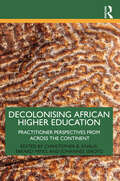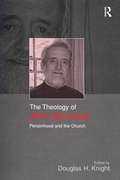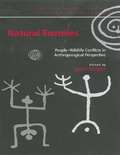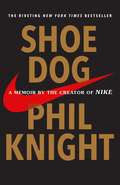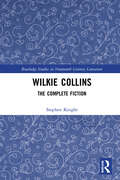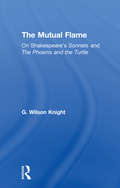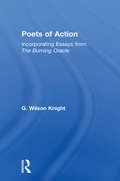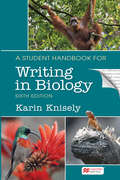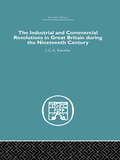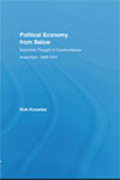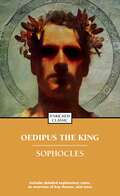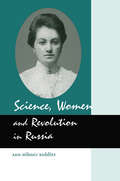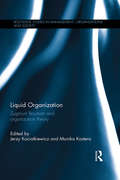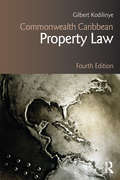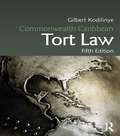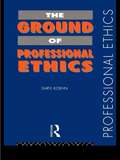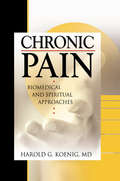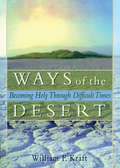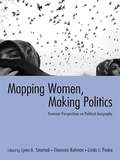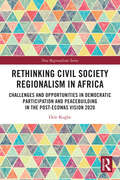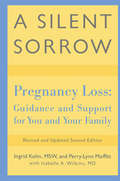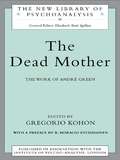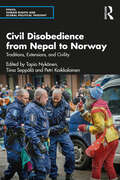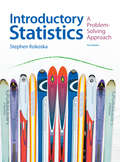Special Collections
Benetech’s Global Certified Accessible Titles
Description: Benetech’s GCA program is the first independent third-party EPUB certification to verify ebook accessibility. By creating content that is born accessible, publishers can meet the needs of all readers. Learn more: https://bornaccessible.benetech.org/
- Table View
- List View
Decolonising African Higher Education
by Christopher B. Knaus and Takako Mino and Johannes SerotoAcross the African continent, college student activists have long fought to decolonise African institutions. Reflecting ongoing Western colonisation, however, Indigenous African languages, thought, and structures remain excluded from African universities. Such universities remain steeped in Eurocentric modes of knowing, teaching, researching, and communicating. Students are rarely afforded the opportunity to learn about the wealth of knowledge and sustainable wisdom that was and is generated by their own home communities. Such localised Indigenous African perspectives are critical in a world committed to anti-Black racism, capitalist materialism, and global destruction. This book thus clarifies decolonial efforts to transform higher education from its anti-Black foundation, offering hope from universities across the continent. Writers are university administrators and faculty who directly challenge contemporary colonial education, exploring tangible ways to decolonise structures, curricula, pedagogy, research, and community relationships. Ultimately, this book moves beyond structural transformation to call for a global commitment to develop Indigenous African-led systems of higher education that foster multilingual communities, local knowledges, and localised approaches to global problems. In shifting from a Western-centric lens to multifaceted African-centrism, the authors reclaim decoloniality from co-optation, repositioning African intellectualism at the core of global higher education to sustain an Ubuntu-based humanity.
The Theology of John Zizioulas
by Douglas H. KnightJohn Zizioulas is widely recognised as the most significant Orthodox theologian of the last half century and acclaimed advocate of ecumenism. From his indepth knowledge of the intellectual resources of the Church, Zizioulas has argued that the Church Fathers represent a profound account of freedom and community that represents a radical challenge to modern accounts of the person. Zizioulas uses the work of the Fathers to make an important distinction between the person, who is defined by a community, and the individual who defines himself in isolation from others, and who sees community as a threat to his freedom. Zizioulas argues that God is the origin of freedom and community, and that the Christian Church is the place in which the person and freedom come into being. This volume offers a critical appraisal of the theology of John Zizioulas. Leading Anglican, Reformed, Catholic and Orthodox international scholars, including Colin Gunton, Nicholas Loudovikos, Paul McPartlan, Wolfhart Pannenberg and Philip Rosato present essays which analyse Zizioulas' trinitarian doctrine of God, and his theological account of the Church as the place in which freedom and communion are actualised. Many include discussions of Zizioulas' Being as Communion as well as other lesser known works, now available in Communion and Otherness. Together they represent an unrivalled introduction to the work of this great theologian.
Natural Enemies
by John KnightWild animals raid crops, attack livestock, and sometimes threaten people. Conflicts with wildlife are widespread, assume a variety of forms, and elicit a range of human responses. Wildlife pests are frequently demonized and resisted by local communities while routinely 'controlled' by state authorities. However, to the great concern of conservationists, the history of many people-wildlife conflicts lies in human encroachment into wildlife territory.In Natural Enemies the authors place the analytical focus on the human dimension of these conflicts - an area often neglected by specialists in applied ecology and wildlife management - and on their social and political contexts. Case studies of specific conflicts are drawn from Africa, Asia, Europe and America, and feature an assortment of wild animals, including chimpanzees, elephants, wild pigs, foxes, bears, wolves, pigeons and ducks.These anthropologists challenge the narrow utilitarian view of wildlife pestilence by revealing the cultural character of many of our 'natural enemies'. Their reports from the 'front-line' expose one fact - human conflict with wildlife is often an expression of conflict between people.
Shoe Dog
by Phil KnightIn this instant and tenacious New York Times bestseller, Nike founder and board chairman Phil Knight &“offers a rare and revealing look at the notoriously media-shy man behind the swoosh&” (Booklist, starred review), illuminating his company&’s early days as an intrepid start-up and its evolution into one of the world&’s most iconic, game-changing, and profitable brands.Bill Gates named Shoe Dog one of his five favorite books of the year and called it &“an amazing tale, a refreshingly honest reminder of what the path to business success really looks like. It&’s a messy, perilous, and chaotic journey, riddled with mistakes, endless struggles, and sacrifice. Phil Knight opens up in ways few CEOs are willing to do.&” Fresh out of business school, Phil Knight borrowed fifty dollars from his father and launched a company with one simple mission: import high-quality, low-cost running shoes from Japan. Selling the shoes from the trunk of his car in 1963, Knight grossed eight thousand dollars that first year. Today, Nike&’s annual sales top $30 billion. In this age of start-ups, Knight&’s Nike is the gold standard, and its swoosh is one of the few icons instantly recognized in every corner of the world. But Knight, the man behind the swoosh, has always been a mystery. In Shoe Dog, he tells his story at last. At twenty-four, Knight decides that rather than work for a big corporation, he will create something all his own, new, dynamic, different. He details the many risks he encountered, the crushing setbacks, the ruthless competitors and hostile bankers—as well as his many thrilling triumphs. Above all, he recalls the relationships that formed the heart and soul of Nike, with his former track coach, the irascible and charismatic Bill Bowerman, and with his first employees, a ragtag group of misfits and savants who quickly became a band of swoosh-crazed brothers. Together, harnessing the electrifying power of a bold vision and a shared belief in the transformative power of sports, they created a brand—and a culture—that changed everything.
Wilkie Collins
by Stephen KnightThis book provides the first comprehensive overview of the complete works of Wilkie Collins’s. Examining his vast array of novels and short stories, this volume includes analysis of the social, historical, and political commentary Collins offered within his works, illuminating Collins as more than a successful crime and sensation author, or the fortunate recipient of Dicken’s grand patronage, but as a hard-thinking and lively-writing part of the rich mid-Victorian literary scene. Overall, Collins is seen as a master of narratives which deal with social and personal issues that were much debated in his fifty-year authorial period. Close attention is paid to the events, themes, and characterization in his fiction, revealing his analytic vigor and the literary power of that period and context. Delivering fresh insight into the variety and richness of Collins’ themes and arguments, this volume provides a key source of information and analysis on all Collins’ fiction.
Mutual Flame - Wilson Knight V
by Wilson KnightFirst Published in 2002. Routledge is an imprint of Taylor & Francis, an informa company.
Poets Of Action - Wilson Knight
by Wilson KnightFirst Published in 2002. Routledge is an imprint of Taylor & Francis, an informa company.
A Student Handbook for Writing in Biology
by Karin KniselyThe newest edition of Knisely�s Student Handbook for Writing in Biology is the helping hand your students are looking for, offering the support they need to write within the conventions of biology. Topics range from reading technical literature and writing scientific papers, to preparing lab reports and giving oral presentations of scientific findings. Students get practical advice from MS Office appendices, tutorial videos, and various checklists. Examples and resources throughout the text show not just what to do, but how to do it.The newest edition mirrors the ways students use online resources and social media platforms for research, making sure the information is both credible and relevant. A new statistics chapter covers the application of descriptive statistics to actual datasets and selected tests of significance.
The Industrial & Commercial Revolutions in Great Britain During the Nineteenth Century
by L.C.A KnowlesFirst Published in 2005. Routledge is an imprint of Taylor & Francis, an informa company.
Political Economy from Below
by Rob KnowlesCommunitarian anarchism is a generic form of socialism that denies the need for a state or any other authority over the individual from above, and which requires absolute belief that the individual cannot exist outside of a community of others. This book suggests that the communitarian anarchists of the nineteenth century developed and articulated a distinct tradition of economic thought. The period of this study begins with the first major writing of the French communitarian anarchist, Pierre-Joseph Proudhon, in 1840 and ends with the temporary burial of anarchist theorizing at the beginning of the First World War in 1914. However, he tradition of communitarian anarchist economic thought did not end in 1914. The economic thought explored in this book provides a fresh perception of the fragmentation evident in many societies today, especially where there is a substantial "informal economy."
Oedipus the King
by Sophocles and Bernard KnoxA great masterpiece on which Aristotle based his aesthetic theory of drama in the Poetics and from which Freud derived the Oedipus complex, King Oedipus puts out a sentence on the unknown murderer of his father Laius. By a gradual unfolding of incidents, Oedipus learns that he was the assassin and that Jocasta, his wife, is also his mother. [This text is listed as an example that meets Common Core Standards in English language arts in grades 9-10 at http://www.corestandards.org.]
Science, Women and Revolution in Russia
by KoblitzWhile the women's movement might seem like a relatively new concept, Russian women of the 1860s deserve to be acknowledged as individuals who changed the direction of science and opened the doors of higher education to women throughout Europe. The 1860's and 1870's witnessed a rise in women's consciousness and the beginnings of the Russian revolutionary movement that saw women pursue and receive doctorates in many areas of science. These same women went on to become some of the brightest in their fields. This book provides a look at Russian women scientists of the 1860's, their personal independence, and technical and literary achievements that made science the popular social movement of the time and changed the face of the Russian intellectual culture.
Russia's International Relations in the Twentieth Century
by Alastair Kocho-WilliamsRussia has long been a major player in the international relations arena, but only by examining the whole century can Russian foreign policy be properly understood, and the key questions as to the impact of war, of revolution, of collapse, the emergence of the Cold War and Russia’s post-Soviet development be addressed. Surveying the whole of the twentieth century in an accessible and clear manner Russia’s International Relations in the Twentieth Century provides an overview and narrative, with analysis, that will serve as an introduction and resource for students of Russian foreign policy in the period, and those who seek to understand the development of modern Russia in an international context. The volume includes: an analysis of the major themes which surrounded Russia’s position in world affairs as one of the European Great Powers before the First World War the impact of Revolution and the emergence of Soviet foreign policy with its dual aims of normalization and world revolution the changes wrought to the international order by the rise of Nazi Germany and by the Second World War the origins and development of the Cold War the end of the Cold War and the Soviet collapse how Russia has rebuilt itself as an international power in the post-Soviet era. An essential resource for students of Russian history and International policy.
Liquid Organization
by Monika Kostera and Jerzy KociatkiewiczWidely known as a leading intellectual, Zygmunt Bauman’s thinking is often categorized as sociology or philosophy. But his work has been hugely influential in other fields as well, not least within organization studies. From increasing management control and growing standardization of work activities, to the increase in uncertainty and insecurity experienced by contemporary workers, organizations themselves are becoming ever more ephemeral entities. Bauman’s themes: globalization, liquid modernity and postmodern ethics are arguably fundamental to contemporary notions of organization and management and his thinking has never been more relevant. However, despite the obvious and continuing influence of Bauman’s ideas on business studies, there has been no comprehensive attempt to chart his impact on organization theory. In this innovative and insightful collection, an international selection of leading management scholars explore key topics in current organizational discourse, including networked organizations, control and ambiguity, technologies, work and responsibility, extending Bauman’s liquid modernity to the "liquid organization". The book will be essential reading for scholars and academics and students in management and organizational theory, and also sociology, managing culture and organizational ethnography.
Commonwealth Caribbean Property Law
by Gilbert KodilinyeProperty law is concerned with a wider variety of rights, obligations and interests than most other areas of law, and can prove daunting to those studying the subject for the first time. Commonwealth Caribbean Property Law sets out in a clear and concise manner the central principles of the law of real property in the region, in order to guide students through this often complex core subject area. In this new edition, the book has been fully revised and updated to include important new case law from the various Caribbean jurisdictions and an expanded appendix of working documents. With comprehensive coverage of the main topics studied by undergraduates, such as Leases, Co-Ownership, Restrictive Covenants, Easements, Mortgages, and Land Sale, this textbook is essential reading for LLB students in Caribbean universities and students on CAPE Law courses. The extensive coverage of land law from a Caribbean perspective and analysis of the substantive laws of several jurisdictions will also make this text an invaluable reference tool for practitioners.
Commonwealth Caribbean Tort Law
by Gilbert KodilinyeTort law is a subject of primary importance in the study and practice of the common law in Caribbean jurisdictions. This work is now well established as the leading text on tort law in the region, and this fifth edition has been updated throughout to incorporate developments in law and legal thinking, including special contributions on medical negligence and the misuse of private information from the Hon Justice Roy Anderson and Dr Vanessa Kodilinye. The accessible writing style and integration of up-to-date material enables students to grasp the salient points and develop a thorough understanding of Tort Law in the Caribbean. Although conceived primarily as a text for the LLB degree courses in Caribbean universities, Commonwealth Caribbean Tort Law is also essential reading for students preparing for the CAPE Law examinations and the various paralegal courses in the region. Legal practitioners will find the book useful as a work of ready reference, and it will also be of interest to those business executives, industrialists, insurance agents and journalists who require some knowledge of this most important area of the law.
The Ground of Professional Ethics
by Daryl KoehnAs each week beings more stories of doctors, lawyers and other professionals abusing their powers, while clients demand extra services as at a time of shrinking resources; it is imperative that all practising professionals have an understanding of professional ethics.In The Ground of Profesional Ethics, Daryl Koehn discusses the practical issues in depth, such as the level of service clients can justifiably expect from professionals, when service to a client may be legitimately terminated and circumstances in which client confidences can be broken. She argues that, while clients may legitimately expect professionals to promote their interests, professionals are not morally bound to do whatever a client wants.The Ground of Professional Ethics is important reading for all practising professionals, as well as those who study or have an interest in the subject of professional ethics.
Chronic Pain
by Harold G KoenigHelp your clients achieve victory over chronic pain and lead more fulfilling lives!This insightful and informative book will help you deliver better pain management services to the people you care for. Incorporating biomedical, surgical, psychological, social, and spiritual perspectives, it provides vital, up-to-date information about how to reduce physical pain and explores techniques for improving people&’s ability to cope with it. Helpful tables provide easy access to information on medications for pain and managing side effects.Chronic Pain: Biomedical and Spiritual Approaches is filled with resources for the person in pain and for the health or religious professionals working to help them. It gives you very specific suggestions on how to manage chronic pain, including detailed information about medications, alternative therapies, psychological treatments, and spiritual strategies for pain management. The book is completed by two thoughtful appendixes: one examining pain medications and ways to manage their side effects and the other providing scriptural passages that can comfort those in pain.In addition to his experiences treating patients with chronic pain, the author suffers from chronic pain and disability himself. In this very personal book, he explores ways to help people coping with: low back pain fibromyalgia rheumatologic pain headaches the pain of multiple sclerosis other types of chronic unrelenting painChronic Pain: Biomedical and Spiritual Approaches can help people in pain and their families by showing them how to lead satisfying, joy-filled lives--whether their pain goes away or not. It is an essential reference book for everyone who works with pain sufferers as well as patients and their families!
Ways of the Desert
by Harold G Koenig and William F KraftDiscover how negative experiences such as loneliness, depression, and anxiety can be opportunities for personal growth!Ways of the Desert: Becoming Holy Through Difficult Times analyzes the similarities and differences between spiritual and psychological experiences. This book shows religious professionals and others interested in spiritual development how suffering can foster growth. You will explore the so-called “negative” desert experiences--depression, anxiety, loneliness, guilt, and anger--and learn how they can be opportunities for spiritual growth. This book explains why opposites are necessary and related parts of healthy and holy development, and that, especially in a spiritual life, the positive and negative are related. Ways of the Desert will take you on a journey through the “deserts” and “promised lands” of adolescence, adulthood, and the elderly years. In most Western cultures the acceptance of opposites as a necessary and related part of healthy and holy growth is not common, and its rejection can engender spiritual stagnation. Ways of the Desert offers suggestions on creating lifelong spirituality including: understanding the need for both “clock” time for functional order and “sacred” time to redeem us from the boredom of our daily challenges understanding the languages of the desert, or the messages that are primarily nonverbal, ambiguous, or ambivalent using effective communication when expressing feelings such as shame, frustration, anger, or anguish examining the similarities and differences between psychological and spiritual activity comparing psychological twelve-step help programs to spiritual growth journeysThis extraordinary book works to help you make sense of your life when you feel lost, trapped, depressed, or lonely. You will attain spiritual guidance to assist you on your journey through life and help you understand that the deserts of negative experiences that we sometimes wander into can be illuminating opportunities for spiritual progress. Ways of the Desert will guide you through difficult and challenging times and help you achieve spiritual satisfaction and happiness in life.
Mapping Women, Making Politics
by Eleonore Kofman and Lynn A. Staeheli and Linda J. PeakeMapping Women, Making Politics demonstrates the multiple ways in which gender influences political processes and the politics of space. The book begins by addressing feminism's theoretical and conceptual challenges to traditional political geography and than applies these perspectives to a range of settings and topics including nationalism, migration, development, international relations, elections, social movements, governance and the environment in the Global North and South.
Rethinking Civil Society Regionalism in Africa
by Dele KogbeThis book interrogates the extent to which regional civil society organisations have evolved as actors in West Africa. Examining civil society democratic participation in regional integration and involvement in regionalism of peacebuilding, it rethinks how we study civil society in the Economic Community of West African States (ECOWAS) region. Beyond the functional typology of civil society actors as ‘partner’, ‘legitimiser’, ‘resistance/counter-hegemonic’ and ‘manipulator’, the book develops a new analytical framework to understand how organisations such as the West African Civil Society Forum (WACSOF) and West African Network for Peacebuilding (WANEP) have evolved. Offering analytical perspectives of the actorship of specific regional civil society actors the book draws attention to the tendencies in the previous studies of mistaking an action or misdeed that is empirically specific to particular civil society organisations within a region to the generality of the civic space of the region. Providing an alternative perspective aimed at invoking a new intellectual conversation about civil society regionalism this book advances a new analytical framework of action-based regional identity of civil society, regional presence of activities, regional capacities and societal impact. It will be of interest to academics and scholars of International Relations, global governance, African politics and comparative regionalism.
A Silent Sorrow
by Ingrid Kohn and Perry-Lynn Moffitt and Isabelle A. WilkinsA Silent Sorrow has long been considered the "bible" for families seeking emotional and practical support after a pregnancy loss. Well organized, easily accessible, and filled with practical suggestions for each topic it covers, A Silent Sorrowis a positive first step for bereaved parents and their families, providing support and guidance to help resolve thegrief and enable them to look to the future with hope.
The Dead Mother
by Gregorio KohonThe Dead Mother brings together original essays in honour of André Green. Written by distinguished psychoanalysts, the collection develops the theme of his most famous paper of the same title, and describes the value of the dead mother to other areas of clinical interest: psychic reality, borderline phenomena, passions and identification. The concept of the 'dead mother' describes a clinical phenomenon, sometimes difficult to identify, but always present in a substantial number of patients. It describes a process by which the image of a living and loving mother is transformed into a distant figure; a toneless, practically inanimate, dead parent. In reality, the mother remains alive, but she has psychically 'died' for the child. This produces a depression in the child, who carries these feelings within him into adult life, as the experience of the loss of the mother's love is followed by the loss of meaning in life. Nothing makes sense any more for the child, but life seems to continue under the appearance of normality. The Dead Mother is a valuable contribution to literature on psychoanalytic and psychotheraputic approaches to grief, loss and depression.
Civil Disobedience from Nepal to Norway
by Tapio Nykänen and Tiina Seppälä and Petri KoikkalainenThis volume explores the shifts in how civil disobedience has come to be theorized, defined, understood, and practised in contemporary politics. As social activism takes increasingly global forms, the goals of individuals and groups who view themselves as disobedient activists today can be defined in broader cultural terms than before, and their relationship to law and violence can be ambiguous. Civil disobedience may no longer be entirely nonviolent, its purposes no longer necessarily serve progressive or emancipatory agendas. Its manifestations often blur the lines established in “classic”, philosophically justified, and self-regulatory forms as epitomised in mass nonviolent protests of Mahatma Gandhi and Martin Luther King and theories of Arendt, Rawls and Dworkin. How civil disobedience operates has changed over the years, and this volume unpacks its many contemporary lives. It discusses new theoretical and political dilemmas and paradoxes through empirical cases and practical examples from Europe, the United States, and South Asia, which enables a “mirroring” perspective for the challenges and complexities of civil disobedience in different parts of the world. Bringing together innovative and introspective perspectives on people and protests in contemporary political contexts, this volume will be of great interest to scholars and philosophers of political science, international relations theory, political philosophy, peace and conflict studies, sociology, and cultural studies.
Introductory Statistics
by KokoskaThis text helps students develop the fundamental lifelong skill of solving problems and interpreting solutions in real-world terms. One of our goals was to make this problem-solving approach accessible and easy to apply in many situations. We certainly want students to appreciate the beauty of statistics and connections to so many other disciplines. However, it is even more important for students to be able to apply problem-solving skills to a wide range of academic and career pursuits, including business, science and technology, and education. Third Edition, presents long-term, universal skills for students taking a one- or two-semester introductory-level statistics course. Examples include guided, explanatory solutions that emphasize problem-solving techniques. Example solutions are presented in a numbered, step-by-step format. The generous collection and variety of exercises provide ample opportunity for practice and review in a variety of contexts. Concepts, examples, and exercises are presented from a practical, realistic perspective. Real and realistic data sets are current and relevant. The text uses mathematically correct notation and symbols and precise definitions to clearly illustrate statistical procedures and proper communication. This text is designed to help students fully understand the steps in basic statistical arguments, emphasizing the importance of assumptions in order to follow valid arguments or identify inaccurate conclusions. Most importantly, students will understand the process of statistical inference. A four-step process (Claim, Experiment, Likelihood, Conclusion) is used throughout the text to present the smaller pieces of introductory statistics upon which the large, essential statistical inference puzzle is built.
